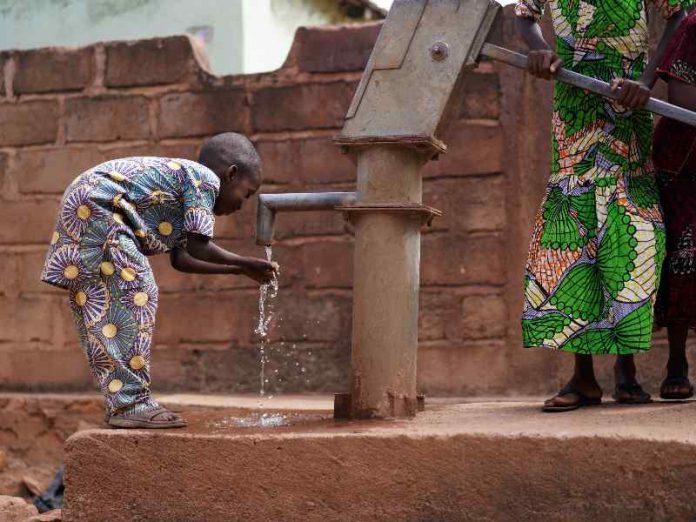A team of high-level officials and the World Health Organisation recently teamed up to assess and address the effects of the ongoing drought in Somalia. Following this, the team successfully rehabilitated two water pumps, providing 19,716 people with access to clean water.
For just over a month between 7 May and 16 June 2022, Somali local Fatumo Yusuf Diriye spent three hours every day, walking to and from the nearest water source (6kms away) to fetch water for her family.
As she could carry only two jirigaans or pails of water at a time and had to wait her turn in a long queue, her family had to use this water sparingly. They resorted to using ashes or sand to clean their hands.
Fatumo knows that having to deal with unsafe water has contributed to her three children, all under five years old, falling sick with diarrhoea many times before.
On many occasions, she has had to rush them to the nearest health facility for support. This is one burden that families like Fatumo’s, who depend on her daily earnings from a local market, can do without.
Access to water is a recognized human right
Currently, only 52% of the population in Somalia has access to improved drinking water (the population using safely managed drinking-water services). This number is staggeringly low in the internally displaced persons (IDP) camps like Salama. Recurring droughts, such as the one ongoing, make water an even more scarce resource.
Around the world, the WHO and the United Nations Children’s Fund (UNICEF) found that in 2019, 2.2 billion people lacked access to safely managed drinking water services. In July 2010, the United Nations General Assembly recognised access to water and sanitation as a human right.
The Health Assembly acknowledged that every human needs to access “between 50 and 100 litres of safe, acceptable and affordable water a day for personal and domestic uses”. The General Assembly also stated that families’ main water source should be within one kilometre of their home and that it should not take longer than 30 minutes for a family to access water.
To complement this, the UN Sustainable Development Goal (SDG) 6 aims to ensure the availability and sustainable management of water and sanitation for all. This will reduce the burden of waterborne diseases, and advance progress towards universal health coverage.
Read Previous Articles
Special Envoy of the President meets with head of the Emergency Directors Group

